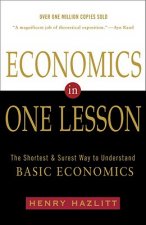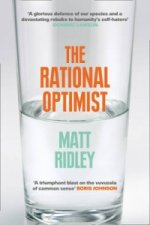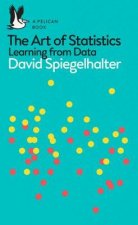
Kód: 02459307
Locating Efficiency and Productivity Champions in a new Banking Environment
Autor Georg-Stephan Barfuß
Diploma Thesis from the year 1999 in the subject Business economics - Investment and Finance, grade: 2,0, Maastricht University (Faculty of Economics and Business Administration, Department of Economics), course: Money and Banking ... celý popis
- Jazyk:
 Angličtina
Angličtina - Väzba: Brožovaná
- Počet strán: 134
Nakladateľ: Diplom.de, 1999
- Viac informácií o knihe

Mohlo by sa vám tiež páčiť
-

Hot Cracking Phenomena in Welds II
215.29 €
Darčekový poukaz: Radosť zaručená
- Darujte poukaz v ľubovoľnej hodnote, a my sa postaráme o zvyšok.
- Poukaz sa vzťahuje na všetky produkty v našej ponuke.
- Elektronický poukaz si vytlačíte z e-mailu a môžete ho ihneď darovať.
- Platnosť poukazu je 12 mesiacov od dátumu vystavenia.
Viac informácií o knihe Locating Efficiency and Productivity Champions in a new Banking Environment
Nákupom získate 306 bodov
 Anotácia knihy
Anotácia knihy
Diploma Thesis from the year 1999 in the subject Business economics - Investment and Finance, grade: 2,0, Maastricht University (Faculty of Economics and Business Administration, Department of Economics), course: Money and Banking, language: English, abstract: Inhaltsangabe:Abstract:§Part one of the thesis states the changes and developments that have markedly altered the banking world. This analysis is followed by a discussion about the consequences these transformations have on credit institutions in general. Special focus is devoted to the universal bank, the advantages and disadvantages of which are linked to the changes mentioned above.§Part two begins with the introduction of a prominent member of the universal banking type: ING Group and its banking operations in the Netherlands, ING Bank, respectively. Both are shortly introduced and their performance measured with the help of "traditional" tools. To go deeper than the mere standard comparison of data given in annual reports, however, a new method will be introduced that approximates the relative efficiency and productivity of companies - in this case banks. This method is called "Data Envelopment Analysis" (DEA) and offers some advantages that complement "traditional" ways of assessing company performance. DEA is then run with the help of a special software programme, processing data about 65 credit institutions that are operating in the Dutch market. The focal point of interest in this analysis is on the performance of ING Bank as measured by DEA. This kind of "benchmarking" will be performed in two ways: first statically (comparison within a certain year), then dynamically (comparison over the years 1992 to 1995). Subsequently, the credit institutions will be summed up into categories like "best-practice" or "worst-practice" to conduct further analyses. The conclusions from this analysis is then taken as a basis to evaluate, whether ING Bank has been able to adopt to the growing demands of an ever faster changing banking environment.§The concluding chapter relates mainly to an additional usage of DEA that is not related to benchmarking directly. DEA and the results it yields can be used to find out, which firms are especially successful in incorporating the all-important "soft factors" like firm culture, tradition, values, employee motivation, and the like. This application uses DEA as a kind of "navigator", that helps annalists to save time by pointing directly to potential owners of "soft factors".§The appendix gives the sources of data used and the quality and reliability thereof. Furthermore, the credit institutions used in the analysis will be stated in name. A list of mathematical formulae that make up the DEA analysis and the logic behind it bring up the rear.§Gang der Untersuchung:§Der erste Teil der Diplomarbeit beleuchtet die Veränderungen und Entwicklungen die die Bankenwelt in den letzten Jahren einschneidend verändert haben sowie deren Auswirkungen auf die Kreditinstitute. Besonderes Augenmerk wird dabei auf die Gattung der Universalbank gelegt, deren Vor- und Nachteile in Bezug auf die erwähnten Veränderungen aufgezeigt werden.§Im zweiten Teil geht es zuerst um einen prominenten Vertreter, der - stellvertretend für andere Universalbanken - näher beschrieben und "traditionell" bewertet wird: die ING Group, bzw. ihre Bankentochter in den Niederlanden, die ING Bank. Um jedoch über den normalen Kennzahlenvergleich hinauszugehen, wird im Folgenden eine neue Methode vorgestellt, die die relative Effizienz und Produktivität von Firmen - in diesem Falle Banken - zu messen versucht. Diese Methode heißt "Data Envelopment Analysis" (DEA) und bietet Vorteile, die "traditionelle" Methoden der Firmenbewertung ergänzen. DEA wird folglich auf ein Sample von 65 Kreditinstituten, die im niederländischen Markt operieren, angewandt, wobei eine speziell
 Parametre knihy
Parametre knihy
Zaradenie knihy Knihy po anglicky Economics, finance, business & management Economics
124.08 €
- Celý názov: Locating Efficiency and Productivity Champions in a new Banking Environment
- Podnázov: Using Data Envelopment Analysis (DEA) to benchmark ING Bank against a Sample of 65 Banks operating in the Dutch market over the Period 1992 to 1996
- Autor: Georg-Stephan Barfuß
- Jazyk:
 Angličtina
Angličtina - Väzba: Brožovaná
- Počet strán: 134
- EAN: 9783838617916
- ISBN: 3838617916
- ID: 02459307
- Nakladateľ: Diplom.de
- Hmotnosť: 181 g
- Rozmery: 210 × 148 × 8 mm
- Dátum vydania: 26. September 1999
Obľúbené z iného súdka
-

Principles for Dealing with the Changing World Order
24.33 € -12 % -

Misbehaving - The Making of Behavioral Economics
10.57 € -12 % -

Microeconomics and Behaviour, 3e
79.70 € -

Business Model Navigator, The
26.80 € -14 % -

History of Economics
16.63 € -23 % -

Why Nations Fail
11.19 € -14 % -

Team Topologies
23.92 € -12 % -

Freakonomics
9.13 € -10 % -

Economics In One Lesson
15.81 € -23 % -

Start-Up Nation
9.13 € -24 % -

Rational Optimist
13.65 € -

Art of Statistics
10.98 € -24 % -

Essential Mathematics for Economic Analysis
73.13 € -1 % -

Liar's Poker
13.65 € -

Predictably Irrational
14.99 € -19 % -

Irrational Exuberance
20.53 € -8 % -

Price of Inequality
10.26 € -15 % -

The Invisible Hand
8 € -22 % -

How I Made One Million Dollars Last Year Trading Commodities
53.51 € -

(Mis)Behaviour of Markets
14.47 € -23 % -

Breakthrough Copywriter
17.86 € -

Economics 101
14.88 € -18 % -

Leading at a Higher Level
34.71 € -

Cartoon Introduction to Economics
19.81 € -8 % -

Human Action
38.20 € -

Fed Up
25.57 € -18 % -

Ludwig von Mises
23 € -

New World Economy: A Beginner's Guide
15.40 € -21 % -

J R
27.72 € -5 % -

Radical Uncertainty - Decision-Making Beyond the Numbers
19.10 € -2 % -

Speak Up
18.79 € -13 % -

Pyramid Principle, The
51.25 € -

Economic Facts and Fallacies
17.04 € -20 % -

A-Level Economics: Year 1 & 2 Complete Revision & Practice (with Online Edition)
28.44 € -9 % -

Scrum - A Pocket Guide - 3rd edition
22.90 € -4 % -

Debt, 10th Anniversary Edition
28.13 € -22 % -

Misbehavior of Markets
24.75 € -

Econometric Analysis, Global Edition
86.58 € -

Hypomanic Edge
21.25 € -12 % -

ITIL4 A POCKET GUIDE
25.26 € -

Decision Book
16.22 € -16 % -

Principles of Economics
16.01 € -13 % -

45 Second Presentation That Will Change Your Life
10.06 € -19 % -

Economics of the Public Sector
83.60 € -

Discovery, Capitalism & Distributive Justice
23 € -

Economics: The User's Guide
14.47 € -23 % -

Freakonomics
6.46 € -25 % -

Think Like a Freak
9.75 € -25 % -

Phishing for Phools
16.43 € -14 %
Osobný odber Bratislava a 2642 dalších
Copyright ©2008-24 najlacnejsie-knihy.sk Všetky práva vyhradenéSúkromieCookies



 21 miliónov titulov
21 miliónov titulov Vrátenie do mesiaca
Vrátenie do mesiaca 02/210 210 99 (8-15.30h)
02/210 210 99 (8-15.30h)